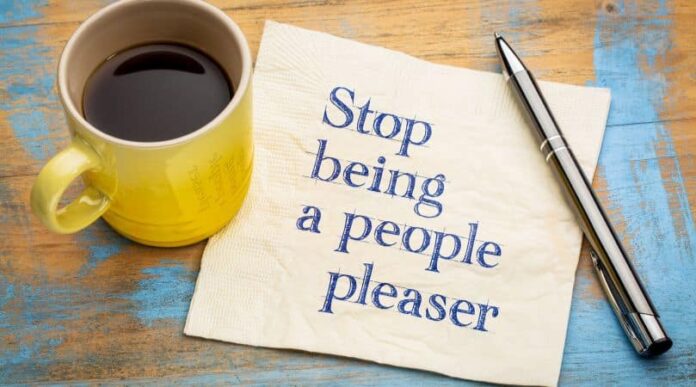[ad_1]
Have you found yourself saying yes to something but deep down inside you really wanted to say NO? Are you too nice for your own good? Do you find yourself giving way more than receiving in relationships?
If you’re nodding along, you may be suffering from the ‘Too Nice Syndrome.’ Being too nice can often lead you to feel undervalued and disrespected in your relationships.
In this post, I’ll share some insights on how you can avoid falling into the trap of being a doormat in your relationships and become more empowered.
Identify the Root Cause
At the core of being ‘too nice’ is often a deep-seated lack of self-worth. Most people pleasers tend to seek validation outside themselves because they don’t have a clear understanding of their values and what they need to make them happy inside.
This can lead a person to morph to fit in with any narrative around them so they can feel good about themselves. Even at the expense of their own well-being, they go above and beyond what is expected of them, hoping that this will make the other person like them more.
However, this often has the opposite effect and can ultimately lead to you feeling used and undervalued.
Establish Boundaries
One of the most critical steps in overcoming ‘Too Nice Syndrome’ is to establish healthy boundaries. In my Conscious Dating Program, I call these non-negotiables.
These are not superficial traits like someone’s height or how much money they make. Instead, non-negotiables are a set of core values you need to be met by your partner in order to be happy in a relationship. For example, someone that is family oriented or is willing to be vulnerable and express their feelings.
Knowing and setting boundaries communicates to others that you value yourself and your time. It also helps to establish clear expectations about what you are and are not willing to tolerate in your relationships.
Balanced partnerships are necessary for any healthy relationship whether that is in love, friendship, or at work. If you are in a relationship with a taker, you most likely feel taken advantage of and exploited. If this is you, check out this video where I show you how to identify a taker and what to do if you are in a relationship with someone who is taking too much and giving too little.
[Article Continued Below]
It’s Okay to Say No and Disappoint
Saying ‘no’ can be a significant challenge for many people, especially if you’re scared of hurting the other person’s feelings. Disappointment is part of life. It helps the other person learn how to treat us and what is okay and not okay to us.
Checking in with your values before agreeing to a favor or taking action is essential. If you are used to automatically saying yes without thought, you are not honoring your own needs or boundaries. Blaming the other person is easy, but you are responsible for creating the healthy boundaries you want to be honored.
Being in tune with your voice and sharing your truths is the best way to avoid feeling like a doormat. Remember that it’s okay to say “NO” to assert your needs and prioritize your own well-being.
Practice Self-Compassion
Asserting your boundaries can bring up a host of emotions and anxiety. Especially if you are not used to voicing your truths. It is essential to build a tremendous level of self-compassion during this time.
Dr. Brene Brown is a shame researcher and says the best way to practice self-compassion is by talking to yourself as you would someone you love and care about. If you make a mistake, instead of calling yourself stupid. What would you say to a friend? Most likely, “Everything will be okay; you made a mistake; we all do. You are still an amazing human.”
Taking care of yourself first and foremost. Set realistic goals and expectations for yourself, and be kind to yourself if you slip up.
Surround Yourself with Healthy Relationships
You become the average of the five people you surround yourself with. It is important that you look at your tribe of people. Are they lifting you up or tearing you down? Are they compassionate people or ego-based friends? Do they make you feel emotionally safe?
Surround yourself with people who value and respect you. This means cultivating relationships with people who honor your boundaries and treat you with kindness and respect.
When you surround yourself with healthy relationships, you set the stage for more positive experiences in all areas of your life.
In conclusion, being too nice can be a challenging habit to break, but it’s essential for your happiness and well-being. Remember, valuing yourself is key to attracting the love and respect you deserve.
If you need support in creating healthier boundaries and breaking the people-pleasing cycle, I’m here to help. Schedule a Free Relationship Readiness Review with me here.
[ad_2]
amiethedatingcoach.com







